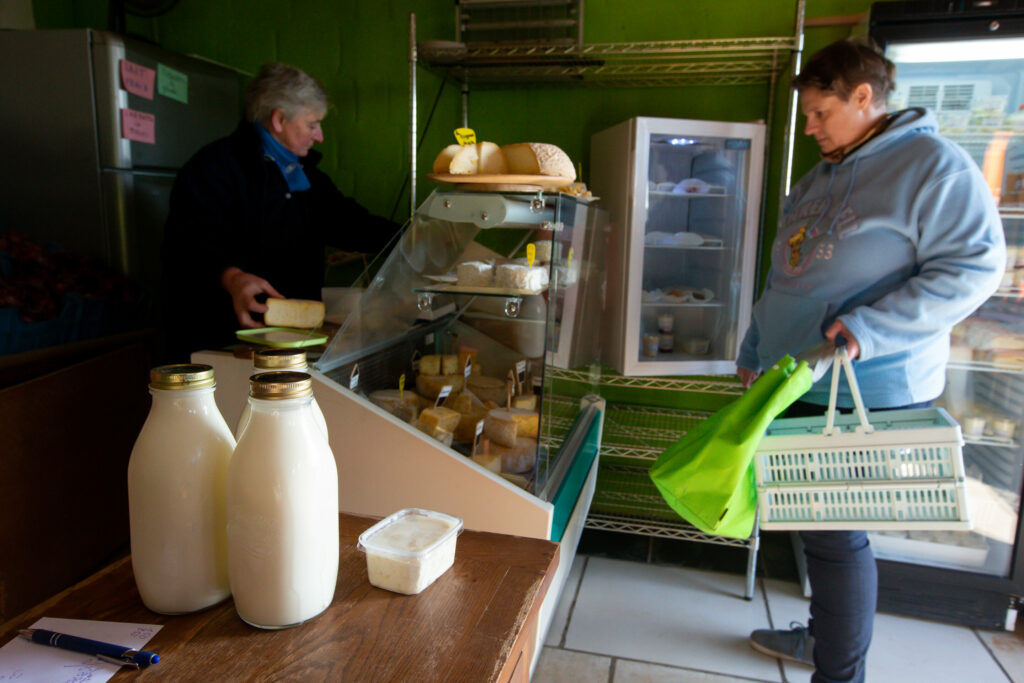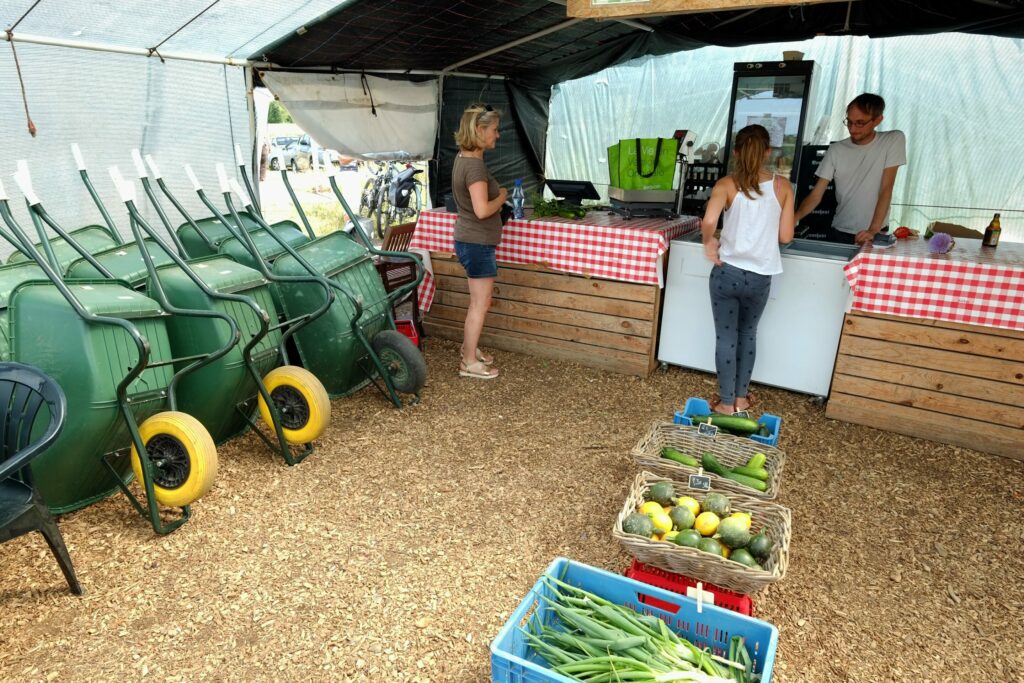Recent farmer protests have put the agriculture sector in the public eye, leading many to reconsider their attitude to consumption and how their food is produced. In response to the complaint from farmers that they receive a poor price for their work – often with multinational food processors and distributors taking a sizeable profit, some are asking if farm shops might be the solution.
The outlets are popular with many Belgian consumers, who appreciate the contact with producers as well as the improvements in quality favoured by the shorter chain from field to customer. But while farm shops have advantages – especially in getting a fairer price for producers – it is hard to see that they could be a viable solution to the many complexities of the agricultural sector.
According to recent figures, over 4,000 farmers and horticulturists in Flanders engage in direct sales to consumers, equivalent to about 20% of all Flemish farmers. These transactions often occur through farm shops, eliminating intermediaries and allowing farmers to command better prices.
Ann De Telder, coordinator of the Short Chain Support Centre, told VRT News that there had been a recent uptick in consumer interest in farm shops. "In recent days we have seen that more people are going to the farm shop or the farmers' market."

A farm shop in Gilbecq, Wallonia. Credit: Belga
Many shoppers see this as a way to support farmers who are calling for fairer agricultural policies and pricing structures. Central to the recent protests has been the call for a more sustainable and equitable agricultural policy.
Despite the growing interest in farm shops, De Telder warned that they won't replace supermarkets any time soon. For one, they have a far more limited product range than les grandes surfaces and then there are issues of accessibility for people living in cities, with farm shops often in more rural areas closer to where the produce is grown.
Related News
- Belgium in Brief: What hope for farmers' protests?
- 'Paradigm shift' needed to ease farmer protestors in Europe, says expert
Nonetheless, the Short Chain Support Centre is exploring collaborative initiatives to bridge the gap between farmers and urban consumers. "Ideally, we would like regular supermarkets to include short-chain products in their range, with a fair price for the farmer," De Telder told VRT. However, she acknowledges that farm shops are not a viable option for all producers, as they require additional time and resources.
Moreover, while farm shops offer unique products and the promise of fair pricing, they are not a panacea for all farms. De Telder emphasised that challenges such as regulatory constraints and production costs persist, underscoring the nuanced nature of the agricultural landscape.
Despite the popularity of farm shops, the shift towards a more sustainable and equitable food system will require much more than local initiatives in a sector that is dependent on EU and State subsidies. But with consumers increasingly prioritising transparency and ethical sourcing, farm shops in Belgium could soon see a golden era.

